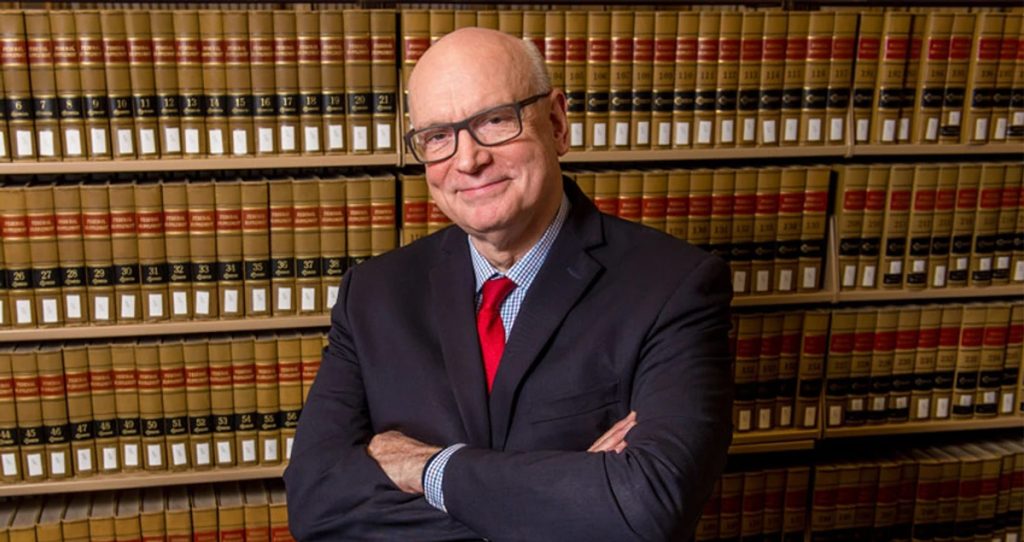“Times change but legal principles remain the same.” Professor Dwight Duncan, a law professor at the University of Massachusetts and an authority on freedom of association and religious liberty, spoke to students October 4 on the problem of compelled speech, or as he put it, “the First Amendment right to remain silent.” His lecture was hosted by BC Law’s Federalist Society.
Compelled speech is a principle that the government cannot force an individual or a group to support a specific expression: a seemingly straightforward concept but one that has caused tension within topics of discrimination and intolerance.
Duncan began his conversation by referencing Thomas More, a renowned lawyer from the 1500’s, beheaded because he refused to swear to the oath of supremacy that parliament had required. At his death, he quoted the expression, “silence betokens consent.” Duncan then highlighted two provisions in the constitution that can be traced back to More’s legacy: the first and fifth amendments. What are the implications of silence, and what rights do the constitution afford to keep silent?
Duncan went on to give a detailed account of his work on the Hurley v. Irish-American Gay, Lesbian and Bisexual Group of Boston, Inc. case from 1995, which ended up before the Massachusetts Supreme Judicial Court. The case centered on the issue of the Massachusetts state court ordering a privately organized parade to include the Irish American Gay Lesbian, and Bisexual Group of Boston under state law. The supreme court ruled that this forced inclusion would be a violation of free speech, just as the parade organizers had argued it was. As Duncan put it, “It wouldn’t be constitutional to apply public accommodations law to an expressive activity, because it means government would be controlling it.”
Duncan quickly transitioned into taking questions from the audience, elaborating on the ideas behind the compelled speech doctrine, at one time putting it as simply as, “I don’t want to be forced by government to say something I don’t want to say.”
After the question was raised from a student about the difference between silence as a form of expression, expression itself, and how those compared to offering services rather than expressions, Duncan admitted, “Not everything you do should be viewed as an expression. Expressive activity is one thing and conduct in general is another.”
Determining the difference between the two often becomes a controversial task. As More referenced, silence itself can often become its own form of expression, and while many may not want to be forced to express a belief they disagree with, others may feel it is their responsibility to learn how to agree. Duncan addressed this broader issue as well: “Part of the price of living in a pluralistic society is you develop a little bit of a tough skin. Not everybody has to agree with you about everything…It’s great to be friends with people you disagree with.”
America is filled with those of differing religions and views, he said. The question becomes, “Being different, how do we work together for the common good?”


